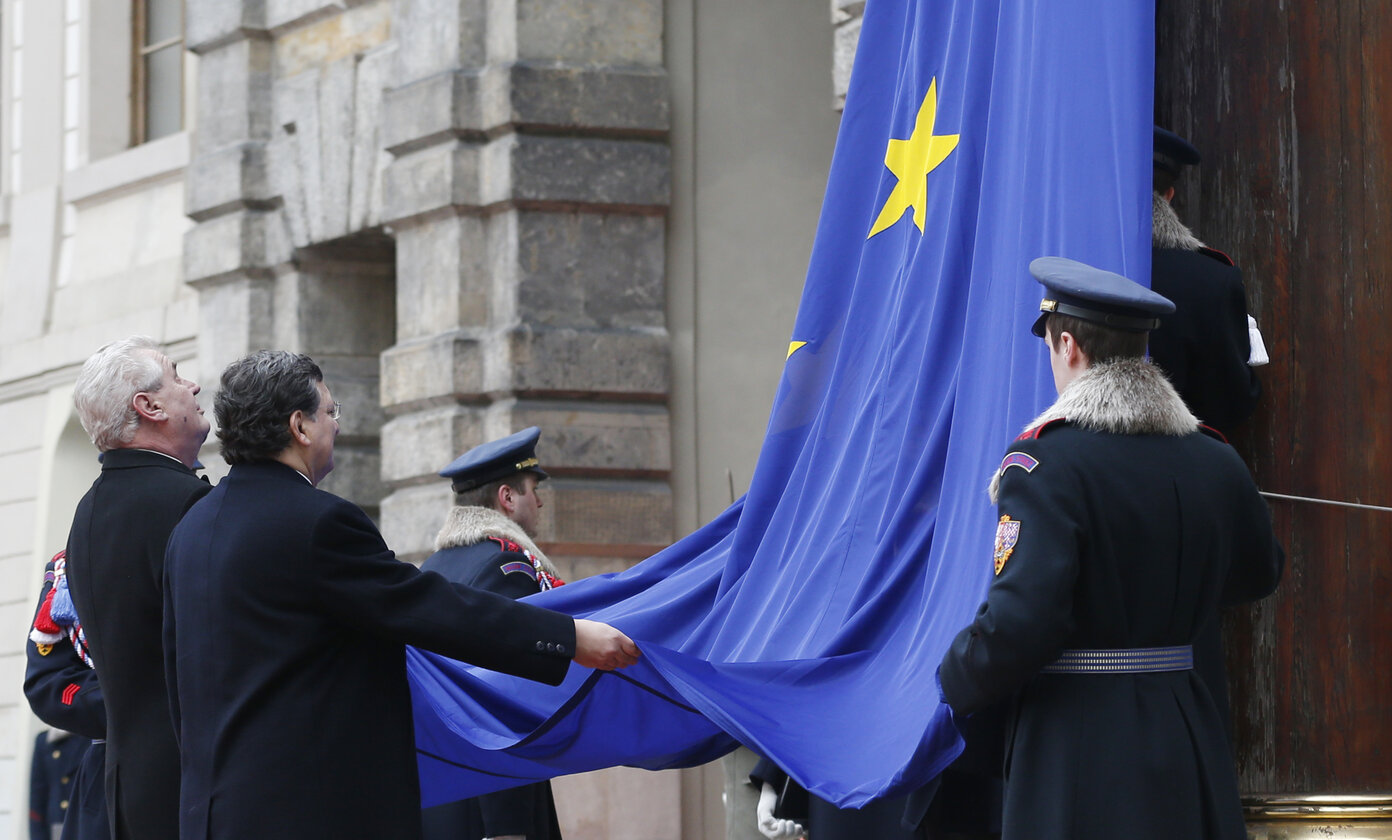Citizens of the Visegrád Group, which is an alliance between the Czech Republic, Slovakia, Hungary, and Poland, have different views on their countries’ membership in the European Union, with the least favorable opinion being expressed by the Czechs. The public in all four countries also differs in attitudes towards the United States and Russia, notes the public opinion poll conducted by Bratislava’s Institute for Public Affairs (IVO).
Only 41 percent of Czechs described their country’s membership in the EU as a good thing, in Slovakia 57 percent expressed the same opinion, in Hungary 59 percent, and in Poland up to 68 percent of the population.
“The Czech public also stands out from the overall Visegrád picture with a high proportion of explicitly negative opinions on EU membership – almost 30 percent of respondents consider it a bad thing,” said the authors of the study.
Visegrad Group considerened important among their citizens
The V4 countries also differ in their attitudes towards the US and Russia. The US enjoys the highest confidence among the population in Poland, while Slovakia ended up on the opposite side of the scale. On the contrary, Russia is perceived best by Slovaks and worst by Poles. The survey confirmed the high mutual trust of Czechs and Slovaks.
Most of the inhabitants of the mentioned countries described the V4 grouping as important and identified the economy and trade as the most important area of regional cooperation. According to the Czechs, other priorities should be cooperation in the field of security and defense, and Slovaks and Poles see the possibility of developing tourism.
The survey on a representative sample of the population in the four Central European countries was conducted this spring when the second strong wave of coronavirus infection peaked in the region. The performance of their government in dealing with the COVID-19 epidemic was best assessed by the people of Hungary. The Slovaks issued the worst evaluation to their government, namely the cabinet of Prime Minister Igor Matovič, who resigned from the position of Prime Minister after the crisis in the coalition.
Title image: European Commission President Jose Manuel Barroso, right, and Czech Republic’s President Milos Zeman, left, attend a European Union flag-raising ceremony at the Prague Castle in Prague, Czech Republic, Wednesday, April 3, 2013. (AP Photo/Petr David Josek)





